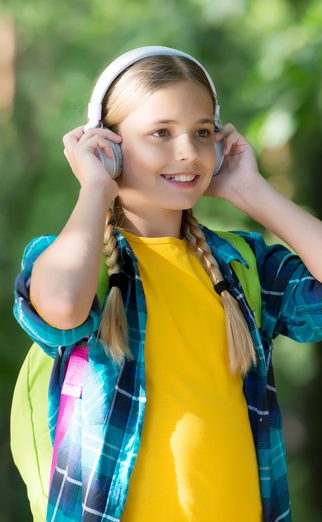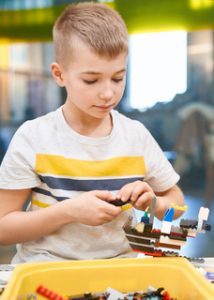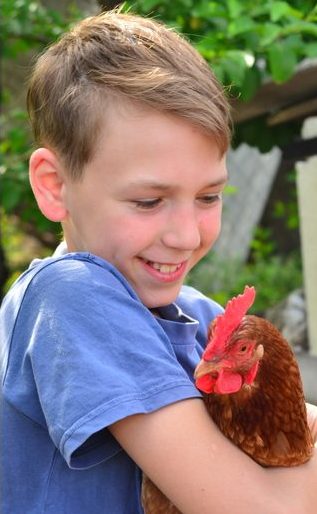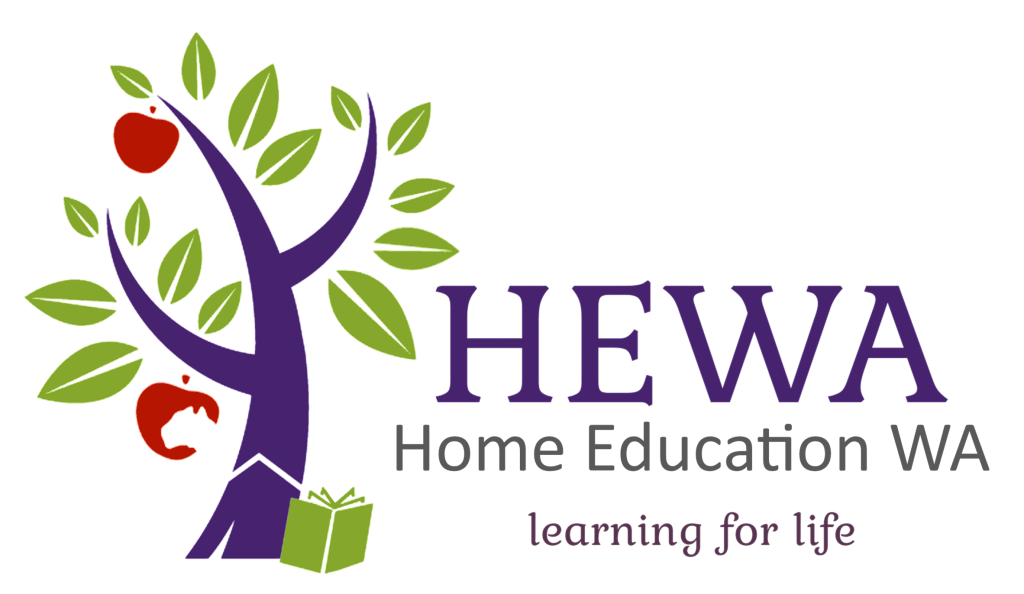Home-educating Students with Additional Needs
Parents of children with additional needs are one of the fastest growing groups within the home education community here in Western Australia. “Additional needs” includes learning differences and neurodiverse learners such as those on the Autism spectrum, students with ADHD, sensory processing disorder, dyslexia, dysgraphia, receptive language disorder, developmental delay and many more learning challenges. It also includes gifted students, twice exceptional (2e) students, students with social anxiety and students with mental health challenges such as depression, anxiety and PTSD.
The reasons parents choose to home educate are as varied as the families themselves, however the most common reason for choosing home education for a child with additional needs is that it enables parents to meet not only the intellectual and educational needs of their child, but also the emotional, physical and developmental needs in a supportive, loving environment – an environment that the child is already familiar with, and one that the child already feels safe and secure in which the parent knows how to navigate confidently.
When starting home education, parents of students with additional needs often face a host of concerns and can feel quite isolated. With the number of students with additional needs in our community though, you are definitely not alone. This page is designed to help provide you with information and resources for your transition to home education. Naturally, each family’s case is unique, so please reach out to us at coordinator@hbln.org.au for more advice or suggestions.

Financial Assistance
The government does not provide education assistants, therapy or educational support for home educators. There are, however, a range of government, private and not-for-profit services within the wider community that offer free or low-cost therapy, advice and assistance for students with additional needs and their parents/carers.
There are two main sources of funding potentially available for home-educating students – the AIC payment and the NDIS. HEWA is not equipped to assist people with applications for this funding but there are community services that provide advice on applying, and you could also ask for assistance from others within the home education community who have been through the process.
AIC – Australian Isolated Children Scheme
www.servicesaustralia.gov.au/individuals/services/centrelink/assistance-for-isolated-children-scheme
AIC is a group of payments for parents and carers of children who can’t go to a local state school. This could be because of geographical isolation, disability or special needs. These payments can be used for educational purposes. To get this payment, your child must meet living, age and study requirements and meet one of the following:
- is geographically isolated
- has a disability or special education need
has no reasonable access to a government school
NDIS – National Disability Insurance Scheme
Funding from the NDIS cannot be used for any educational purposes. It can’t be used to cover classes, tutoring, educational materials or supplies but it can be used for some kinds of therapy such as speech therapy to improve communication outcomes, physical therapy to improve mobility and therapy associated with improving behavioural outcomes. These kinds of therapies can have a beneficial impact on a child’s education but supporting their education cannot be the reason for applying for NDIS funding.


ABLE WA
https://k10outline.scsa.wa.edu.au/home/resources/ablewa
ABLE WA (Abilities Based Learning Education) is a program for students with disabilities and additional needs who cannot access the regular curriculum. If your child was using the ABLE WA curriculum at school, they can continue using it for home education unless you would prefer them to use the regular curriculum.
If you’re not sure whether the ABLE WA curriculum might apply to your child, the best way to start is by looking at the WA Curriculum. Click on a subject area on this page: https://k10outline.scsa.wa.edu.au/home/teaching/curriculum-browser
On the left-hand side, scroll down until you find the ‘Filters’ section. Deselect any boxes that are ticked and then select “Achievement Standards” and ABLE WA stage A, B, C or D. This will give you a description of what is expected of students in each of the ABLE WA stages by the end of a year. ABLE WA is divided into 4 stages that are applicable to any age students, depending on their abilities.
Your Educational Rights
This is the Department of Education’s statement on student diversity.
https://k10outline.scsa.wa.edu.au/home/principles/guiding-principles/student-diversity
On this page, you can read the Department of Education’s Principles of Teaching, Learning and Assessment. The principle about ‘Inclusivity and Difference’ is particularly relevant.
https://k10outline.scsa.wa.edu.au/home/principles/guiding-principles/teaching-learning-and-assessment-principles
You have a right to expect support and interactions with your moderator consistent with the Department of Education’s principles. When you register for home education, you take responsibility for your child’s education. You can tailor an education to meet their individual and unique needs.
If ABLE WA is not suited to your child, check out our information about the regular curriculum here.


Communicating Your Child’s Needs
One of the concerns often faced by home-educating parents is whether their moderator will understand their child’s unique abilities, challenges, need for flexibility and accommodations. If this is a concern to you, here are some tips for helping your moderator to better understand your situation.
* Show your moderator any reports, diagnoses, assessments or information from your child’s GP, therapists or other health care professionals. You can also include reports or information from your child’s school if that is relevant.
* Seeking a formal diagnosis for your child is an individual choice. A diagnosis can help your moderator understand your child better and possibly help you access funding, but it is up to you. If you don’t have a formal diagnosis for your child, consider putting together a report about your child’s learning differences, how they impact your child’s education and special accommodations that your child needs.
* Put some time into writing down or recording information about your child’s strengths, weaknesses, needs and the way they learn best. Write about what you plan to do to help your child with areas of challenge and how you plan to approach their education.
You can let your moderator know these things at your first meeting or before your meeting if you prefer. Sometimes letting your moderator know more about your situation and your child’s needs can be helpful for them. If you find that you are having difficulties negotiating the flexibility you need to do what’s best for your child, please contact HEWA for assistance: admin@hbln.org.au
Online Groups
Here are some WA and national facebook groups for home-educating families. There are also home education and general community support groups for parents of students with specific differences such as ASD or ADHD and so on, but there are too many to list here. Asking for recommendations on the groups below or general home education groups may provide further recommendations.
Perth Gifted Homeschoolers
https://www.facebook.com/groups/479377155534243/
This group is for parents and guardians who are homeschooling or considering homeschooling their gifted children, and who live in Perth, Western Australia. The group functions as a support, a source of ideas, a place to share frustrations, challenges and triumphs, and a space to organise excursions and classes that specifically suit the needs of our quirky kids.
West Australian Homeschooling Kids with Extra Needs
https://www.facebook.com/groups/1318378348232907/
If you are homeschooling children with extra needs, disabilities, giftedness. If you are a family member caring for a child and homeschooling a child that fits the group, you will be able to do so. Carers in exceptional circumstances may be added but will be assessed on an individual basis.


Homeschooling Gifted Kids in Australia https://www.facebook.com/groups/272305732927126/
This is a group for those homeschooling (or contemplating homeschooling) their gifted children in Australia.
Homeschooling Special Needs Kids Australia
https://www.facebook.com/groups/198351110919075/
This is a group for homeschooling parents/carers of children with disabilities or additional needs. The group’s aim is to create a safe environment for members to offer and receive support and advice, as well as being a place to share experiences and to seek social opportunities for their kids. Non-homeschoolers looking for ways to better engage their children in learning at home are also welcome.
Home Education WA (HEWA) Knowledge Collection Group
https://www.facebook.com/groups/545477852189908/
This group is for current home-educating parents in Western Australia to connect, share knowledge and support each other. We post articles, videos and resources on additional needs and diversity at least once a week and often more, so scroll back through the page or use the search function to look up relevant keywords and find related posts from the past.
Homeschooling Perth
https://www.facebook.com/groups/homeschoolingperth
This is a group for home-educating families living in Perth, Western Australia. The purpose of this group is to help, uplift and support one another and make this homeschooling journey an amazing one. Although this group is for all home-educators, it’s a great place to ask questions and connect with others who might have faced circumstances similar to your own.
Homeschool Parents of Highschoolers Perth WA
https://www.facebook.com/groups/567740336605199/
This group is for homeschooling parents of high schoolers in WA. Note, this group is not for teens, but parents only. This is a great group to find support if you are home-educating a teen, and there are many parents of teens with additional needs on this page too.

Resources and Information
There are hundreds of thousands of amazing videos, blogs, articles and websites relating to additional needs of all kinds – way too many to share here. We have chosen the resources below because they relate to home education, because they are blogs or websites with multiple, excellent articles relevant to additional needs or because they provide important definitions and collections of resources. If you find a link broken or have an idea for another resource we could add, please let us know: admin@hbln.org.au
NEURODIVERSITY
Neurodiversity: Some Basic Terms and Definitions
https://neurocosmopolitanism.com/neurodiversity-some-basic-terms-definitions/
This is a useful article that defines a lot of the new terminology around the idea of neurodiversity.
A Different Kind of Genius: Standardized Learning vs Beautiful Diversity
https://lauragraceweldon.com/2019/11/15/a-different-kind-of-genius-standardized-learning-vs-beautiful-diversity/
In this article, Laura Grace Weldon explores what it means for students to be diverse, and how we can shift our perspectives in relating to them. Weldon also has many other articles on her blog relating to giftedness, ADHD and other additional needs.
The Spectrum Doesn’t Mean What You Think
https://neuroclastic.com/2019/05/04/its-a-spectrum-doesnt-mean-what-you-think/
This article discusses the idea of “the spectrum,” which is usually associated with autism, but this article is relevant for any neurodiverse condition and most additional needs exist on as spectrum as explained here.
Embracing Our Neurodiverse Children for Who They Are, Not Who They Should Be
https://www.self-directed.org/tp/embracing-neurodiverse-children/
This article is a great invitation for parents commencing home education to start seeing your child differently than the way school saw them. The Alliance for Self-Directed Education website also has many other great articles on education and students with additional needs.
RESOURCE HUBS FOR ADDITIONAL NEEDS
Different Brains
https://www.differentbrains.org/resources/
A great collection of resources on a wide variety of additional needs and learning differences.
Neurodiversity Hub
https://www.neurodiversityhub.org/
Great resources for autism but also other types of neurodiverse learners
The Mighty
https://themighty.com/
A great collection of articles, stories and personal experiences about living with or raising children with additional needs. Whilst not about home education, it’s a place for parents to find support.
The National Center for Learning Disabilities
https://www.youtube.com/channel/UCcnTqU_6gHKWGlg5TX7JimQ
This is an American resource (Youtube channel) but the video playlists “Ask the Expert” and “Learning and Attention Issues” are useful collections of videos explaining a variety of learning differences.
Embrace Autism
https://embrace-autism.com/
A collection of autism resources and information.
Amaze Autism
https://www.amaze.org.au/autismconnect
This is an Australian support service. You can chat with an advisor online and this can be a good place to start with recommendations for further resources.
Understood
https://www.understood.org/
This is a great collection of articles, information and resources for a wide range of additional needs.
Made by Dyslexia
https://education.microsoft.com/en-us/learningpath/939a69c9
Free training about dyslexia.
Asperger Experts
https://www.aspergerexperts.com/
A range of resources, videos, articles and support options for parents with students on the autism spectrum.
SPELD Foundation
https://dsf.net.au/learning-difficulties
https://www.speld.org.au/learning-differences
A good source of information, resources and support for some learning difficulties such as dyslexia, dysgraphia, dyspraxia and more.
HOME EDUCATION AND ADDITIONAL NEEDS
My Little Poppies
https://my-little-poppies.com/gifted/
https://my-little-poppies.com/101-things-ive-learned-from-homeschooling-my-gifted-son/
Cait writes about giftedness and 2e students. Her articles on home educating students with differences are great and she has lots of resources on her site.
Raising Lifelong Learners
https://raisinglifelonglearners.com/the-ultimate-guide-to-homeschooling-gifted-children/
Colleen writes about home-education, giftedness, 2e and neurodiverse children. Her articles are excellent and her website worth exploring.
Freedom to Learn
https://www.psychologytoday.com/us/blog/freedom-learn/201007/adhd-school-assessing-normalcy-in-abnormal-environment
Peter Gray is a well-known psychologist and home education advocate. Search his blog for many articles on ADHD in particular, but also other learning differences. https://www.psychologytoday.com/us/blog/freedom-learn
Home Education and Children with Disabilities and Different Learning Needs
https://home-ed.vic.edu.au/home-education-and-special-needs-children/
This is an article by Susan Wight that references a lot of good research about home education and children with additional needs.
The Educating Parent Homeschooling and Unschooling
http://homeschoolaustralia.com/articles/specialneeds.html
This is a great collection of short articles on matters related to additional needs.
SERVICE PROVIDERS
There are too many service providers for us to list some but not others here. We suggest that you talk to your child’s current health care providers for further suggestions. There are many great organisations you can connect with who will provide you with a list of useful resources, service providers and therapists you can explore, as well as asking for personal recommendations from people in the groups listed above.

